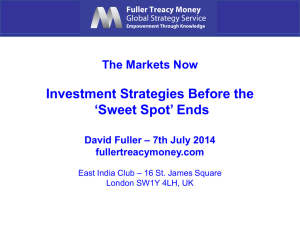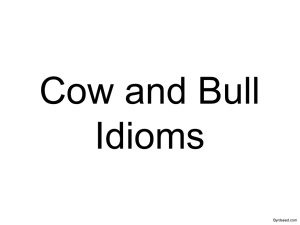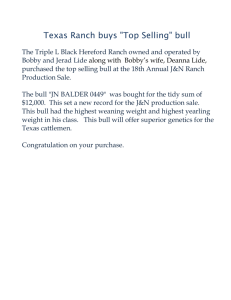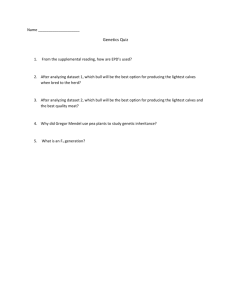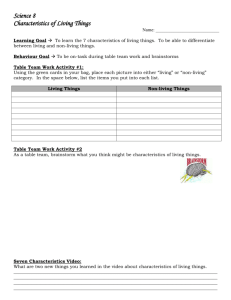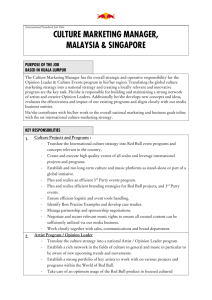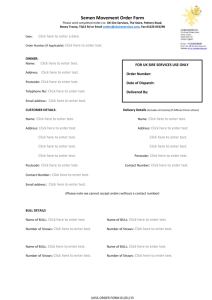Red Bull Gives You Wings
advertisement
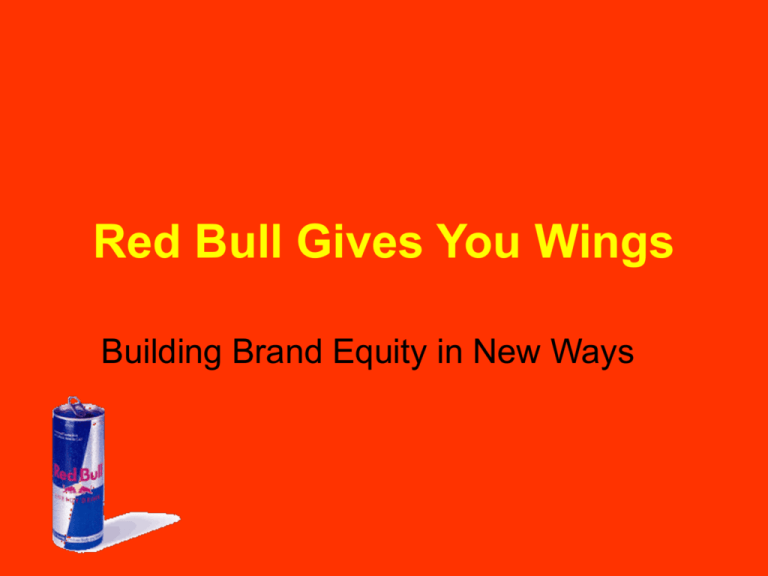
Red Bull Gives You Wings Building Brand Equity in New Ways The Product Launch • 1987 Austria & gradual European roll out. • By 1997 Red Bull was available in 25 markets globally • Red Bull maintained its energy drink market share lead in every mature market Designing the Product • Invented the “functional energy” beverage category • Claims – Improved physical endurance – Stimulates metabolism and helps eliminates waste substances – Improves overall feeling of well being – Improves reaction speed and concentration – Increases mental alertness Packaging, Positioning & Price • Red Bull logo – silver can; only buy singles • Revitalizes body and mind – any occasion where you need a lift • Early adopters – truck drivers, students, clubbers and ravers (mixer) • Premium pricing strategy – 10% greater than most expensive competitor ($1.99 – 3.00 per can) Marketing Red Bull • Product trial is KEY • Word of mouth (testimonials from peers) • Event sponsorships, athlete endorsers, sampling, POP’s and some electronic media • Mystification of Red Bull • Market entry: in shops, clubs, bars – cultural elite and opinion leaders; available to action sports athletes, entertainment celebrities & hip urbanites. Marketing Red Bull • After “premarketing” to build excitement, then expand presence – WOM still the driver • Mass market via supermarkets is last step • Other premarketing activities: extreme sporting event sponsorship and TV where RB not yet available. • Brand ambassadors Marketing Red Bull • Did not define a specific demographic or psychographics – base segments on need • Mature markets – 14-19 age and 20-29 age • Advertising – adult cartoon with famous characters; communicated product benefits w/o psychological results • Advertising – adopted globally • Sampling is the key to product trial - usage Marketing Red Bull • Branded Mini Cooper • Student brand managers for campus • Events – Red Bull Soapbox Race, Flying Day, Snowthrill, Cliff Diving World Tour • Sports marketing – action sports • POPs – miniature glass refrigerators and visible aluminum window stickers • Used “cells” in the US – Ca was first Competition • UK – Virgin dt; AB – 180; Coke – Burn; Pepsi – SoBe Adrenaline Rush and Mountain Dew Amp and host of the brands • Competition varies by country • No competitor has more market share Challenges • What are Red Bull’s sources of brand equity? • How can Red Bull maintain their marketing momentum? • Is this a “fleeting product”? If so, then what?
